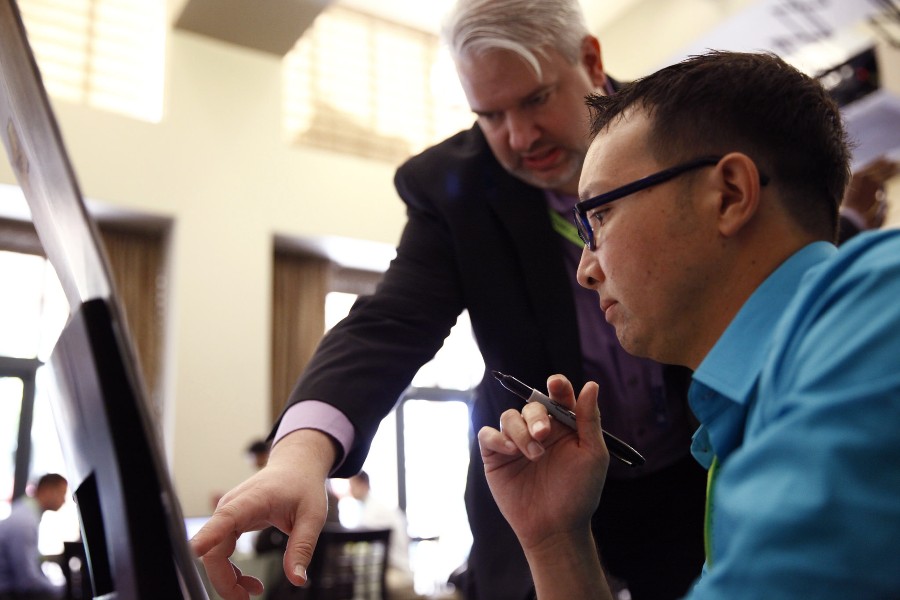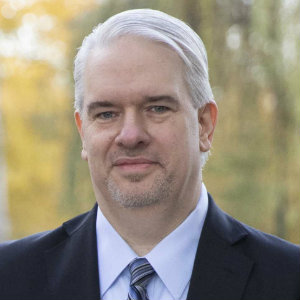Kevin Clauson Drug Donation Act signed into law
Previously discarded medication will be more accessible to patients who cannot afford the necessary drugs.
Keely Hagan | 615-966-6491 |

Thanks to the Tennessee Pharmacists Association (TPA), the community-focused legacy of a late Lipscomb University pharmacy professor will live on through a new law, signed by Gov. Bill Lee on July 12.
The Kevin Clauson Drug Donation Act is named in honor of Kevin Clauson, professor in the College of Pharmacy, dedicated pharmacist and a thought leader and nationally recognized expert in health care informatics and digital health. Clauson died on September 15, 2022, while undergoing aggressive cancer treatment.
The bill includes revisions to the Prescription Drug Donation Repository Program, which allows a pharmacy or medical facility to legally accept and dispense donated prescriptions and supplies as long as they go through a multi-step inspection to ensure safety before they are matched with financially needy patients. Blockchain technology that Clauson helped pioneer tracks and traces donated medicines to provide transparency around the process and an auditable system of that activity.
The Kevin Clauson Drug Donation Act, supported by TPA, will help prevent medication waste and increase access to necessary and life-saving drugs for more individuals, especially those in underserved populations. The bill is set to take effect on January 1, 2024.
“Lipscomb’s College of Pharmacy is proud to be a supporter of the Kevin Clauson Drug Donation Act and we look forward to its implementation in 2024,” says its dean, Tom Campbell. “With the costs of pharmaceuticals continuing to climb, this program will allow for the repurposing of expensive medications to patients who are uninsured or underinsured.
“This legislation is representative of our college’s core values to show compassion and serve those in need,” says Campbell.
Some of the revisions include:
• The eligibility requirements of donors have been broadened
• The definition of “indigent” has been revised to mean an income below six hundred percent (600%) of the federal poverty level
• The list of acceptable medications for donation has been expanded to include inhalers, patches, injectables, over-the-counter medications and specialty medications
• Regulation changes for accepting and dispensing donated prescription drugs and supplies were made, including a mandate to redact all donor information prior to dispensing the drug

Kevin Clauson
Clauson is widely published and was a well-respected speaker, having presented across the country, including at Stanford University’s Medicine X program and the White House for the President’s Precision Medicine Initiative in 2016. He served as a technology advisor for many organizations, including the Food and Drug Administration, the World Health Organization, and the Healthcare Information and Management Systems Society.
“Kevin cared deeply about helping his community, and this bill will allow more Tennesseans to access the life-saving medications they need,” said Angela Clauson, Kevin’s wife. “I’m so grateful that the state is honoring my husband’s legacy with this law and I am eagerly waiting for it to take effect next year.”
Campbell agrees, “I am so happy that this act was named for Dr. Kevin Clauson. Kevin’s research and teaching focused on how we can use technology to improve health outcomes and this act is an example of Kevin’s legacy.”
Clauson was instrumental in developing a first-of-its-kind system that provides underinsured patients with prescribed medication through an innovative use of blockchain technology.
Through his efforts in 2018, the College of Pharmacy partnered with Good Shepherd Pharmacy in Memphis, Tennessee and the FedEx Institute of Technology at the University of Memphis to develop a software platform for a blockchain network accessible by nonprofit pharmacies across the country to eliminate prescription waste and improve the lives of the most vulnerable patients.
The first application on the blockchain platform, RemediChain, allowed individual patients to donate their unused oral chemotherapy to patients who would not otherwise afford them.
Lipscomb started the second health informatics program within a college of pharmacy in the nation in 2010 with a mission to help students make an impact on the health care system. Visit the Lipscomb University website to learn more about the Health Care Informatics Degree at Lipscomb University.